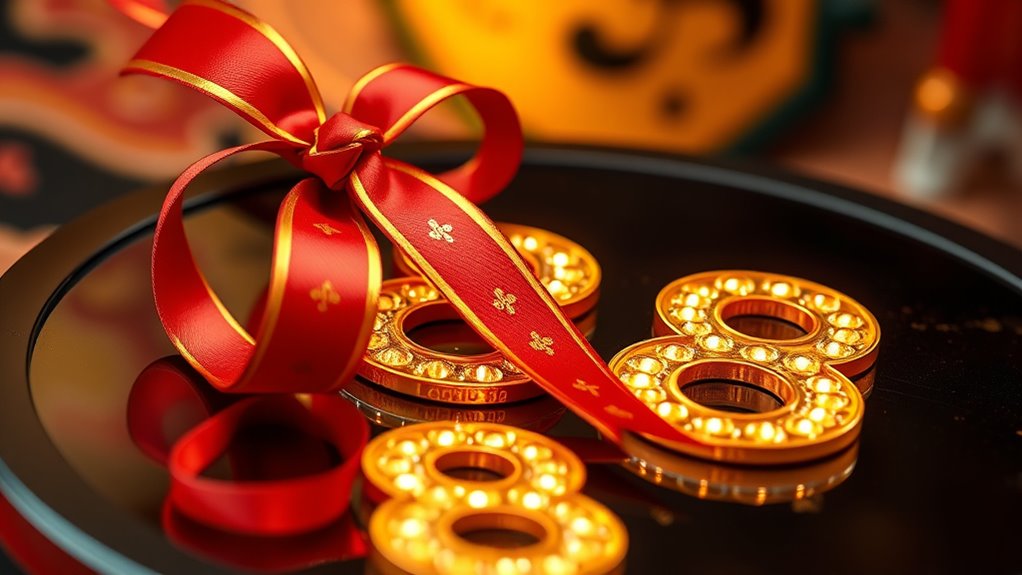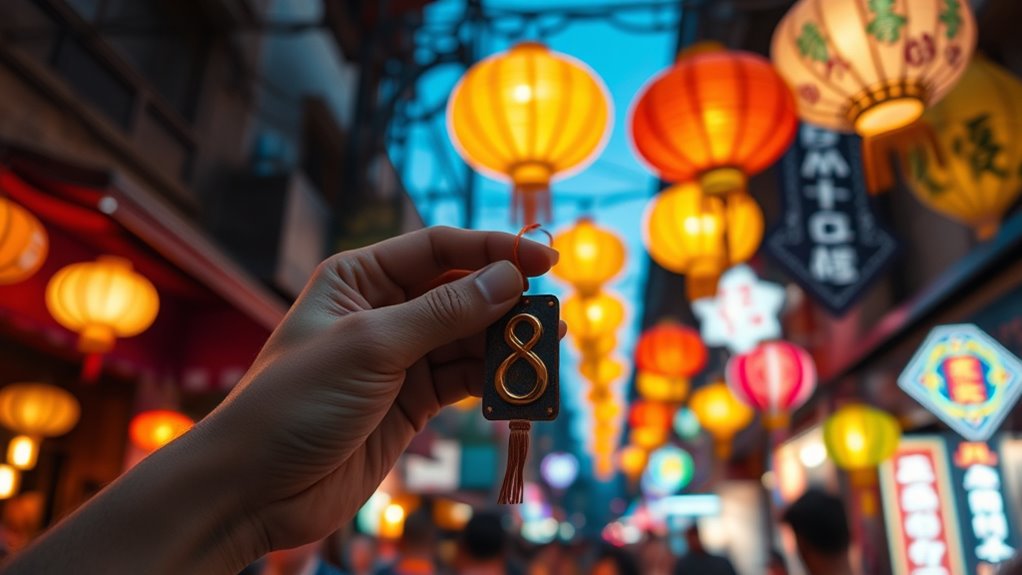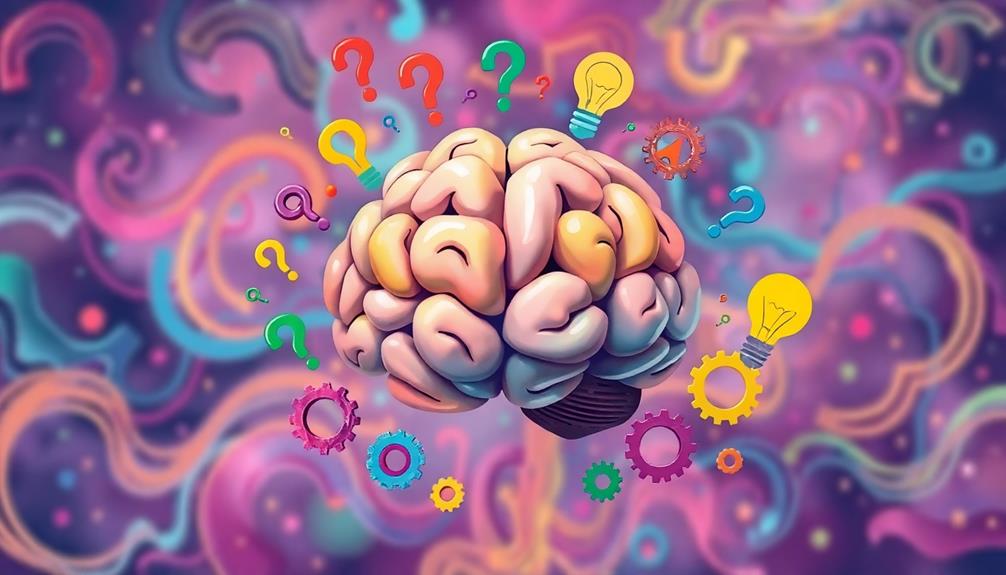Some numbers feel lucky because of cultural stories, traditions, and historical beliefs. For example, in Chinese culture, 8 is considered very fortunate because it sounds like the word for prosperity. In Japan, 7 is seen as a symbol of good luck and harmony. Your positive feelings about certain numbers often come from these cultural narratives that have been passed down and reinforced over time. Explore further to uncover how these stories influence your perceptions of luck and numbers.
Key Takeaways
- Cultural narratives and historical events shape perceptions of certain numbers as lucky or unlucky.
- Phonetic similarities to prosperity words in languages like Chinese make numbers like 8 feel fortunate.
- Symbols like 7 in Japan and 3 in Middle Eastern cultures are associated with harmony, luck, and divine perfection.
- Societal traditions influence choices such as selecting house numbers or dates, reinforcing the belief in lucky numbers.
- Evolving cultural values and modern adaptations maintain the significance of certain numbers as symbols of good fortune.

Have you ever wondered why certain numbers seem to bring good or bad luck? It’s a question that taps into deep-rooted superstitious beliefs and the fascinating world of numerical symbolism. Across different cultures, specific numbers are linked to positive or negative connotations, shaping how people perceive their significance. These associations aren’t random; they develop through centuries of tradition, stories, and collective experiences, turning numbers into symbols loaded with meaning.
Superstitious beliefs often assign special importance to particular numbers based on cultural narratives or historical events. For example, in Western cultures, the number 13 is widely regarded as unlucky. Many buildings skip the 13th floor, and some people avoid hosting events on the 13th day of the month. This fear, known as triskaidekaphobia, stems from folklore and historical superstitions, where 13 is seen as an omen of misfortune. Conversely, in Chinese culture, the number 8 is considered extremely lucky because its pronunciation sounds similar to words meaning prosperity and wealth. As a result, people often go to great lengths to incorporate the number 8 into important life events, such as choosing dates for weddings or business openings.
Numerical symbolism extends beyond superstitions, reflecting a culture’s worldview and values. In Japan, the number 7 is seen as fortunate, often associated with good luck and positive outcomes. This belief is rooted in spiritual traditions and folklore, where the number 7 symbolizes completeness and harmony. In many Middle Eastern cultures, the number 3 is considered auspicious, representing harmony, balance, and divine perfection. These cultural interpretations influence everyday decisions, from phone numbers to license plates, where individuals seek to align themselves with “lucky” numbers. Additionally, the cultural significance of numbers can evolve over time, adapting to societal changes and modern beliefs.
Understanding why some numbers feel “lucky” involves recognizing how superstitious beliefs and numerical symbolism intertwine. People tend to gravitate toward numbers that resonate with their cultural stories and personal experiences. This connection can influence choices, behaviors, and even life-changing decisions. For example, someone might choose a house number containing a “lucky” digit or avoid dates with “unlucky” numbers during significant events. These choices aren’t merely about superstition; they reflect a desire for positive outcomes rooted in cultural identity and collective memory.
Frequently Asked Questions
How Do Individual Beliefs Influence Perceptions of Luck?
Your beliefs shape how you perceive luck by influencing your reactions to superstitious beliefs and personal biases. If you think certain numbers are lucky or unlucky, you’ll likely pay more attention to them, reinforcing your feelings. These perceptions are often rooted in cultural or personal experiences, making your sense of luck deeply personal. By trusting these beliefs, you may unconsciously affect your decisions and how you interpret fortunate or unfortunate events.
Are There Scientific Explanations for Why Certain Numbers Are Considered Lucky?
You might wonder if science explains why some numbers seem lucky. Scientific research suggests that mathematical patterns, like simple sequences, influence perceptions of luck. Psychological biases also play a role, as your mind tends to favor familiar or positive numbers. These factors create a sense of luck around certain numbers, even without cultural influence, showing how your brain’s patterns and biases shape your beliefs about luck.
How Do Different Cultures Interpret the Significance of the Same Number?
Imagine numbers as tiny messengers, whispering different stories across cultures. You see, cultural symbolism shapes how each society interprets the same digit, like a chameleon changing colors. In numerology traditions, some numbers symbolize luck, prosperity, or spiritual awakening, while in others, they signify misfortune. You find these meanings woven into rituals, superstitions, and everyday life, revealing a tapestry of beliefs that make each culture’s view of numbers unique and fascinating.
Can Numerical Superstition Affect Financial or Personal Decisions?
Numerical superstition can definitely influence your financial and personal decisions. When you engage in superstitious behavior or follow numerology practices, you might avoid certain numbers or favor others, impacting choices like investments, dates, or personal milestones. These beliefs can shape your actions, sometimes subconsciously, leading you to make decisions based on perceived luck rather than logic. Recognizing this influence helps you understand how cultural beliefs subtly steer your choices.
Do Lucky Numbers Change Over a Person’s Lifetime?
Think of lucky numbers as seasons in your life’s weather—they can change over time. As you grow and experience new things, your superstitious rituals and beliefs in numerology charts may shift, influencing which numbers feel lucky. Just like seasons, your personal connection to certain numbers can evolve, making some feel more or less fortunate at different stages, reflecting your changing perspectives and experiences.
Conclusion
Remember, numbers can hold different meanings depending on where you are and what you believe. What feels lucky to you might be just a number to someone else. As the saying goes, “It’s all in the eye of the beholder.” So, trust your instincts and embrace the numbers that bring you joy or hope. After all, luck often favors those who believe—because sometimes, a number is just what you make of it.









